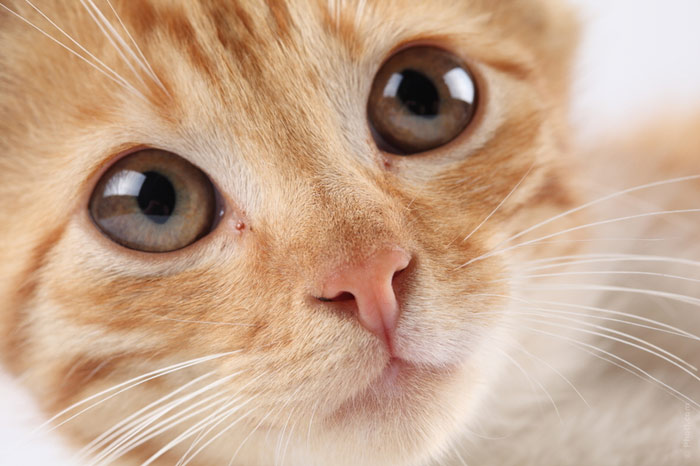As you habitually fondle your pet or enjoy watching your kids play with it, you are not very likely to be thinking of health hazards it might entail. You heard of roundworms or E. coli, surely, but they don’t relate to your dear puppy or kitty – it cannot happen in your family, right?

Unfortunately, not quite. There is a certain risk of catching diseases from animals – this kind is known as zoonotic diseases. Many studies over a long period of time dealt with the pet infection danger; The Canadian Medical Association Journal’s recent review summed up over 500 of them and offered a set of recommendations for taking preventive measures.
You should be aware that the furry and feathery members of your family can transmit about 20 diseases, and the risk becomes significantly greater for people whose immune system is weakened – mostly it concerns young children, old people, pregnant women and ill people (especially those ill with cancer-related diseases which affect the immune function adversely).
There’s no denying that pets do us worlds of good both physically and emotionally. Yet we cannot ignore the fact that our pets’ fur and skin, feces and saliva carry bacteria which may cause diseases. Although in many cases the risk is negligible, we ought to be in possession of related information on how and when our relatives can catch a zoonotic disease.
Let’s begin with the most widespread of health problems.
E. coli and salmonella
Your pets may get these from eating infected pet food – and that goes for people as well; we run the risk of contracting these diseases when handling bad pet food, warn veterinarians.
Roundworms and hookworms
These infections are especially risky for children who omit washing their hands after playing with pets and are often not aware of the seriousness of parasite threats. Hookworms are responsible for skin rashes (which can be very bad), while roundworms bring on ocular lesions which – if neglected – can even lead to blindness.
MRSA (Methicillin-Resistant Staphylococcus Aureus) and C. diff (Clostridium Difficile)
It seems that these two infections are transmitted to pets from people in the first place – and then get spread to other people. Experts say that many of pets exposed to the infections don’t catch them – only those whose immune system doesn’t function as it should. The good advice is as soon as you learn that a member of your family has developed either MRSA or C. diff, to consult your veterinarian how you can prevent your pet from contracting the disease.
Rabies
This is one of the most murderous illnesses with an almost 100% fatality rate. You can get it through being attacked and bitten by a sick animal, and the viral infection is liable to cause a major neurological failure. Fortunately, it yields itself to medical treatment easily.
Bartonella or cat-scratch disease
Bartonella bacteria are transmitted from infected cats who either lick a wound or bite/scratch through the skin. The bitten area gets infected, consequently reddens, swells up and becomes purulent.
Toxoplasmosis
This is a parasitical disease caused by Toxoplasma gondii which can be transmitted through feline feces as you accidentally touch them when cleaning after your furry friend. In most cases the immune system puts the parasite down easily, but it can spell danger for pregnant women and those whose immune system is impaired.
Now if you are no longer going to allow your cat or dog jump up on your chest as you lay down on the coach for a bit if a shut-eye in fear of developing a zoonotic disease, hold your horses! See what precautions you can take for ensuring your safety without disrupting a loving relationship with your zoological friend.
Discuss the risk with both your family doctor and your vet
As you are considering the prospect of acquiring a four-legged friend for the family, before you actually go to a store or a shelter to get one, talk around to learn what would be the safest choice health-wise. Get some expert opinions on the best bet for your particular family, get the information on what animals can carry what diseases, and at what age. Organisms shed by little animals are very different from those carried by adult animals, so if your (or your relative’s) immune system is not at its best, you may want to opt for a grown-up pet.
Be careful about cleaning feces
Clean after your pet with a scoop and a plastic bag – and don’t think it excuses you from washing your hands afterwards! Mind that washing hands is generally the best measure to avoid catching zoonotic infections.
Clean cages, feeding and bedding places on a regular basis
Pets are bound to collect bacteria on themselves, so it’s only logical that you had better see to it that their habitual places are often cleaned and disinfected. It’s a sure way to prevent bacteria from spreading all over your house.
Keep the pet’s litter box away from the place where you eat
It’s a basic rule (sadly too often ignored) that the animal’s litter box mustn’t be in the vicinity of the place where you eat or cook. Also, explain to your children that the pet’s litter is definitely out of bounds. To ensure obeyance place the litter box where they won’t be able to get at it.
Keep your vet appointments
Get your pet tested regularly for bacteria and parasites in its feces and have it vaccinated in good time. As soon as you suspect that something is wrong with its health, take it straightaway to the vet to minimize the possibility of an infection.










